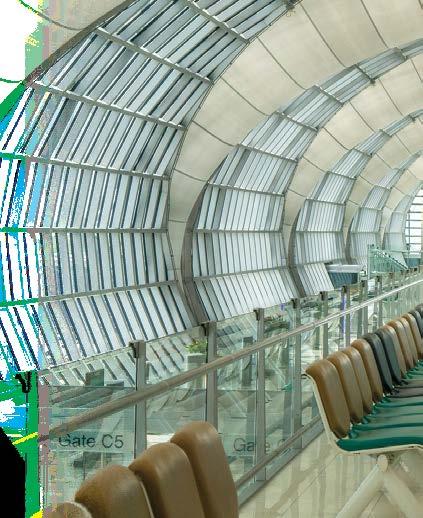facilities management review
FM in a post COVID-19 world Nurses, doctors, first responders – all these job titles evoke a sense of urgency and importance. Now with the impact of COVID-19, facility managers are moving into that same spotlight. They are all essential workers. In this article, Eugene Carr offers unique insight into how the world has changed in 2020 and what the new normal will hold for facility managers following the reopening of economies.
D
uring the early months of this outbreak, I attended most of the online International Association of Venue Managers (IAVM) town hall meetings and witnessed how managers were preoccupied with scenario-building for potential reopenings, creating new operating procedures, protocols for health checks, and redesigning seating maps and traffic flows. Now that the initial shock of the coronavirus pandemic has subsided and the new normal is upon us, it’s time to step back and look at the shifts in our industry that will be continuing. Predicting the future may seem like a fool’s errand, but I’ve had conversations with a wide variety of facility executives and a few ideas about the future have emerged.
Living with change and uncertainty If there’s one constant we’re going to have to live with, it’s that we are in a time of increased uncertainty. And the best way to address this is to be open to change and adopt a creative and innovative mindset. Russian revolutionary Vladimir Lenin, summed it up well when he said: “There are decades where nothing happens; and there are weeks where decades happen.” At many facilities, change comes slowly, either because of bureaucratic or municipal red-tape or simply because when things are not broken there is little motivation to make big changes. But Kelly Bargabos, CFO/COO at San Diego Theatres says, “If there is any silver lining to this pandemic, it’s that it is giving us an opportunity to step back and re-evaluate our business. We are not going back to the way we used
22
African Cleaning Review September/October 2020
to do things.” She continues, “We’re looking at all aspects of our business, and challenging ourselves. Can we do it better, and do the financials line up?” And the focus on financials is particularly important. After all, you now have a huge list of new things you need to accomplish – and it’s not like anyone is offering you a significantly increased budget. So, the only way to operate is by being more productive, by eliminating manual processes, adopting new technology for automation, and redesigning processes.
But, in the aftermath of that attack, as a society, we agreed to a new level of security checks at public gatherings. I’m no longer surprised when I go to a meeting at an office building and I am asked to show ID, have my picture taken, and to wear a badge. Just as security processes changed our world after 9/11, cleaning and janitorial operations have now become critically important. According to Kevin Daly, assistant General Manager at the Los Angeles Memorial Coliseum, “Our janitors and housekeeping staff are the
As new standards and requirements are put in place, you are going to need to track and fully manage all aspects of the cleaning process. This is an area where technology could help by using GPS and mobile phones to manage the cleaning in your facility and help you maximize efficiency with algorithms that can highlight cleaning that took too long or not long enough without supervisors walking around and micro-managing. Even the notion of internal meetings needs to be re-thought. Robby Elliott, the director of production at Mesa Arts Center in Arizona sums it up concisely: “Technology has proved that all those staff meetings could have been emailed!”
Cleaning takes centre stage Those of us that were working in the facilities industry before 9/11 remember all too well how open we were as a society.
new heroes.” He envisions janitorial staff wearing brightly coloured shirts emblazoned with a phrase such as “The Clean Team.” Kevin says, “People are going to expect more.” I am reminded that sometimes when I arrive in a hotel room, I see a narrow strip of paper draped across the toilet indicating that the bathroom has been cleaned. What ways will you be able to show the public that your facility is clean?











